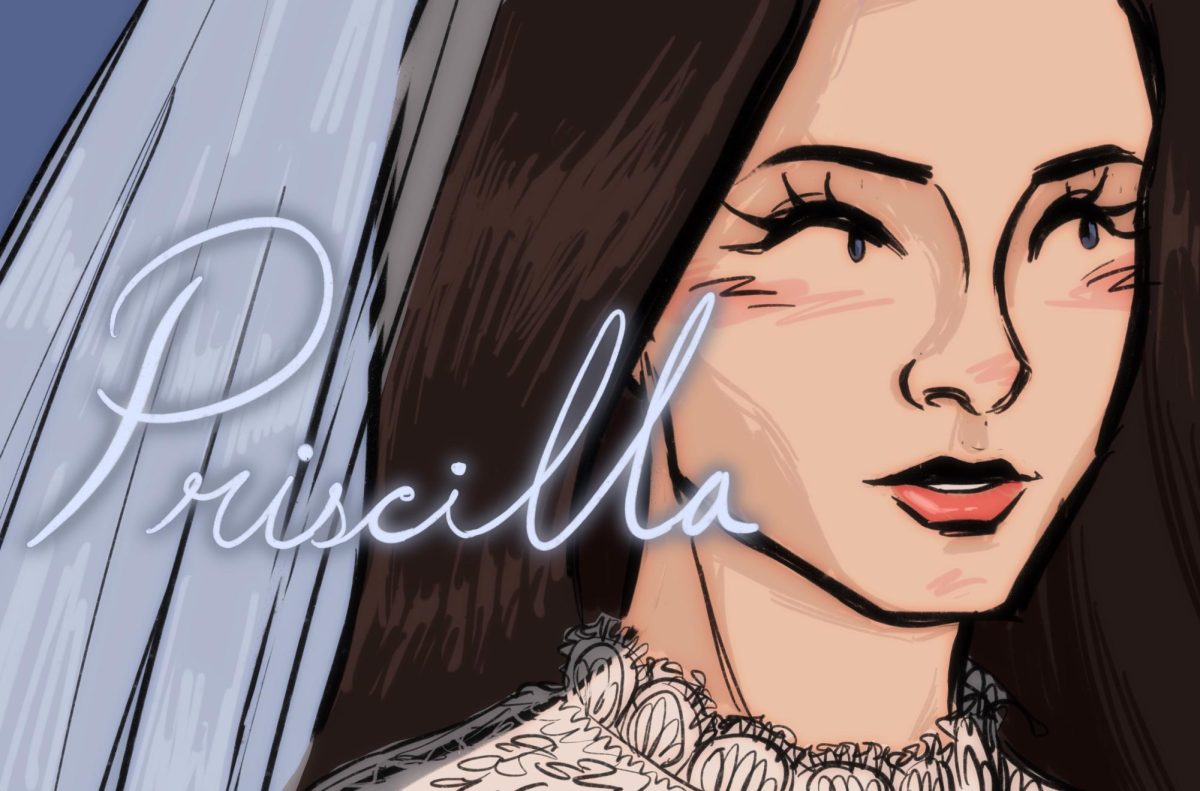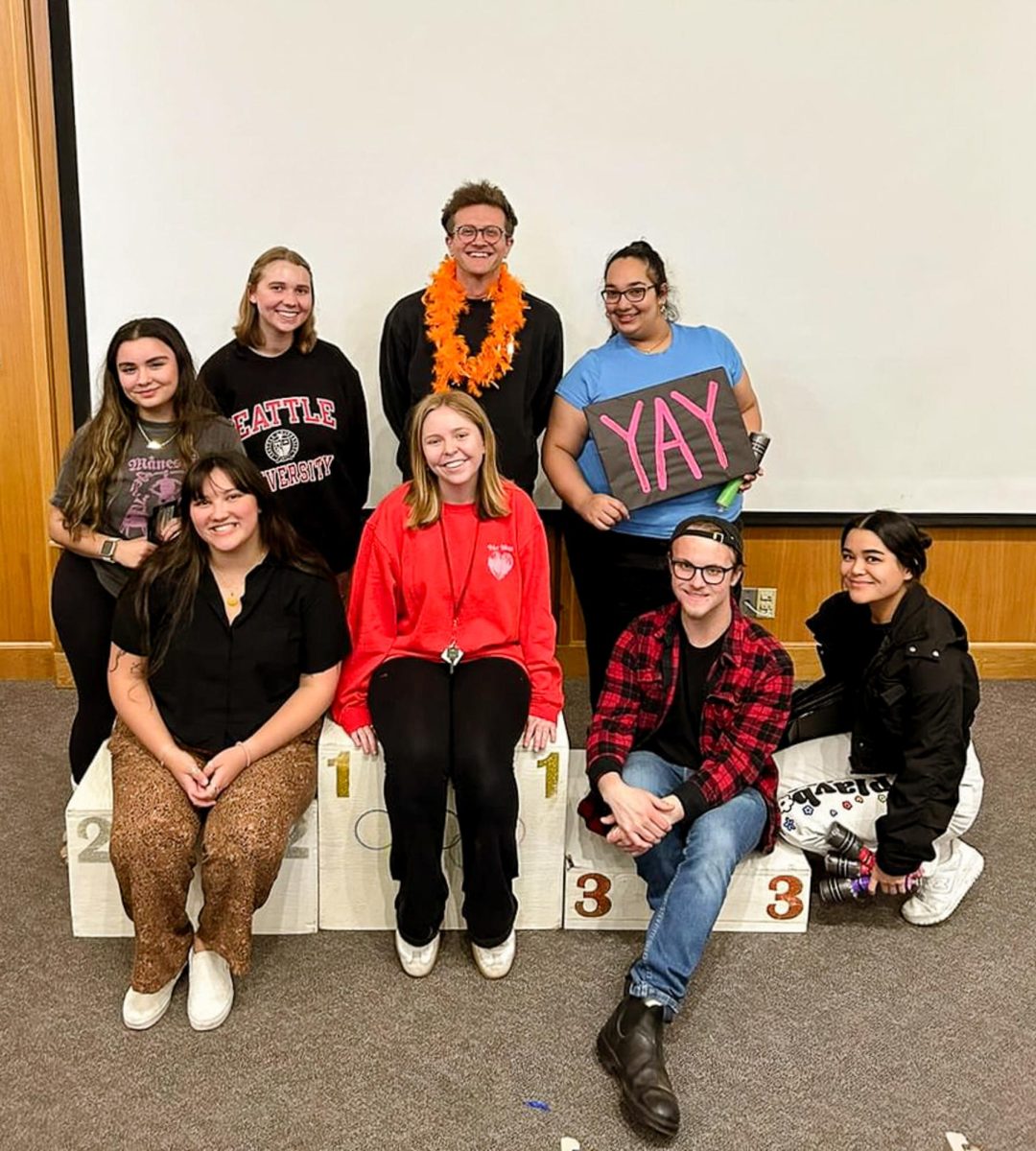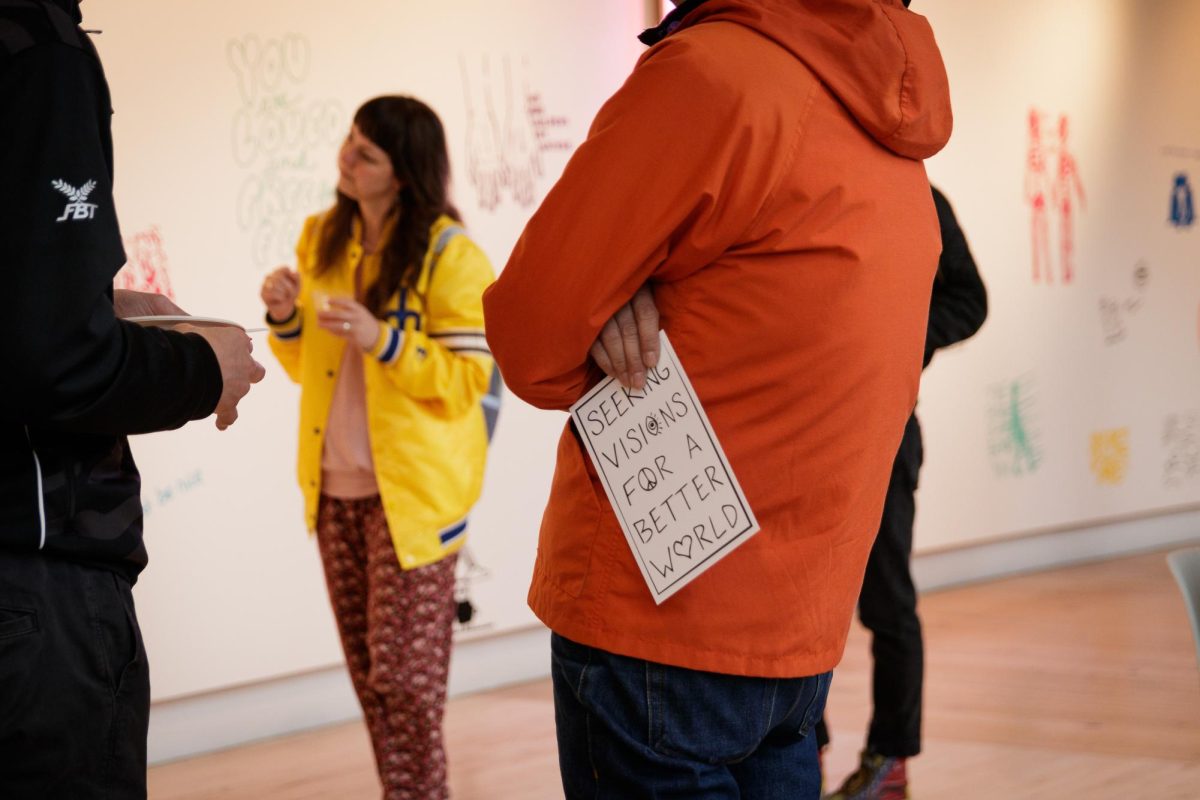The “Priscilla” movie was released Nov. 3, after months of anticipation. Priscilla Presley is played by actress Cailee Spaeny. Directed by Sofia Coppola, the film provides an exhilarating narrative of Pricilla Presley’s controversial marriage to the notorious king of rock and roll, Elvis Presley. Coppola is known by fans for her focus on the female gaze and for capturing the details that are typically overlooked in male perspectives.
The movie opens with a 14-year-old Priscilla Beaulieu studying at a diner in Germany where her stepfather is stationed in the Air Force. Suddenly, she is approached by a man who soon reveals himself to be a companion of Elvis Presley and invites her to Elvis’ home. At this time in Elvis’ career, he had released 10 songs that made the top 40, so he was considered a sensational success. This scene captures the rush of a teenage girl who has just been invited to a celebrity’s house.
When I first heard of Priscilla and Elvis’ relationship, more importantly their age gap—Elvis was 24 at this point—my first thought was ‘What were her parents thinking?’ Expectantly, the film sheds light on how it was quite a different time, and things that wouldn’t fly today were more relaxed back then. Initially, Priscilla’s parents are quite skeptical and reject the notion of their teenage daughter having anything to do with Mr. Presley. However, after relentless pressure from Elvis’ companion, Priscilla’s parents agree to let her meet the rock and roll legend under the supervision of her stepfather’s colleague in the army.
In the next scene, Elvis Presley’s character, played by an enchanting Jacob Elordi, is introduced. Elordi mastered Elvis’ distinct southern accent. In this scene, you notice Elvis’ charisma contrasting with Priscilla’s shyness. In the scene, Elvis sings and plays the piano while his friends surround him. In the distance, Priscilla observes, just happy to be there. This scene foreshadows what was to come in the relationship.
After the performance, Elvis properly introduces himself to Priscilla and you can draw from his body language that he is infatuated with her. While he makes conversation with her, he is surprised but not halted by her age. When Priscilla explains she is a freshman in high school, he remarks, “Oh you’re just a baby.” In that moment it’s almost as if he views her potentially as just a little sister, but as history entails, that is not the truth of the matter.
After, Priscilla is invited to the home of Elvis on multiple occasions to the point where her parents interject, demanding to meet Elvis. Upon meeting, her stepfather asks the burning question, “What are your intentions with my daughter?” Elvis’ response is not very reassuring, “She’s very mature for her age.” In retrospect, her parents weren’t necessarily negligent—they did their due diligence—but they were also dealing with someone who was used to getting what he wanted, and that wasn’t going to change when he met Priscilla.
Elvis later announces to Priscilla that he is returning to the United States, leaving her in Germany. Following Elvis’ return, Priscilla spirals into a deep depression lasting for months. Coppola illustrates Priscilla’s hard times, as she struggles to remember what life was like before Elvis and there is an emphasis on her lack of individuality.
After months go by, Elvis calls Priscilla and invites her to Graceland. When she expresses that her parents would never agree to it, he responds with “Don’t you worry about them!”
The first night at Graceland with Elvis, he introduces her to the world of partying, drugs and countless escapades, resulting in her sleeping for two days straight. Priscilla returns home to Germany looking disheveled and is greeted with looks of shock by her parents. This is the part of the movie where you think the story would end, but things only intensify from this point.
After much strife with her parents, Elvis gets them to reluctantly agree that she moves in with him, on the condition that Priscillia finishes school at Immaculate Conception Cathedral School in Memphis.
The film captivates the struggles and grace that is necessary to be the significant other of a public figure like Elvis. There is a scene in particular that depicts Elvis receiving a package of fan mail containing the lingerie of a very excited fan. This is a situation where some women may be appalled or upset, but Priscilla laughs it off.
The next few scenes depict Priscilla being stripped of her individuality, as she’s tasked with the demands associated with being entangled with a celebrity. Elvis reinvents her wardrobe and suggests a more sophisticated look of the 60s, with black hair accompanied by dark eyeliner.
There is also a more gradual shift in Priscilla becoming more isolated from the outside world. There is a scene where Priscilla suggests she get a part-time job to have some independence, and Elvis gives a stern response: “Either you have a career or me.” Throughout the movie, he expresses a dislike for career-driven women and demands a woman who is available at his beck and call.
The next scene is heartbreaking when Priscilla receives a call from her father. He, like most fathers, wants to know how she is and if she’s being treated alright. When the call ends, he begs her to stay in touch.
There are a range of scenes that exhibit the peculiar dynamic between Elvis and Priscilla and the difference in maturity. There are a few scenes where Elvis’ dark side comes to light. The first scene shows the couple fighting and things get out of hand when Elvis is triggered by a woman asserting dominance over him. Priscilla responds by yelling “You always have to win,” providing insight into what the dynamic between the two entailed.
The next scene in question is when Elvis is up in arms about his music and asks Priscilla for her opinion on a track; when he doesn’t like what he hears, he throws a chair at her. Both scenes indicate how unpredictable, aggressive and erratic Elvis could be at times. Should we attribute this to the demands of the music industry or his substance abuse shown in the movie? I am not sure.
Although not proven, it is implied in the movie that Elvis engages in several affairs, and there is a scene where Priscilla observes him being uncomfortably close with his costar Ann Margaret in a newspaper. Another scene depicts his flirtatious nature when he reads the Bible to a group of young women.
The next few scenes continue to portray Elvis’ erratic and live-for-the-moment attitude.
Eventually, Priscilla and Elvis wed, not too long after Priscilla finds out she’s pregnant with her daughter Lisa Marie. The film captures her daunting transition from being a young woman to an expectant mother.
The next couple of years pass by and Priscilla has a longing for independence and a life outside of Graceland, leading to her eventual divorce. The movie ends with Priscilla and her daughter leaving Graceland yearning for the next chapter.
The movie was very complex and the cinematic excellence didn’t disappoint, although there were a lot of things you had to interpret on your own, which can destroy the aura of a biopic.







![Civil War is A24’s Political Blockbuster that Exceeds Expectations [REVIEW]](https://seattlespectator.com/wp-content/uploads/2024/04/CivilWarReviewWeb-1-1200x791.jpg)



![Jordan Ward [REVIEW]](https://seattlespectator.com/wp-content/uploads/2024/04/ward_1-1200x800.jpg)